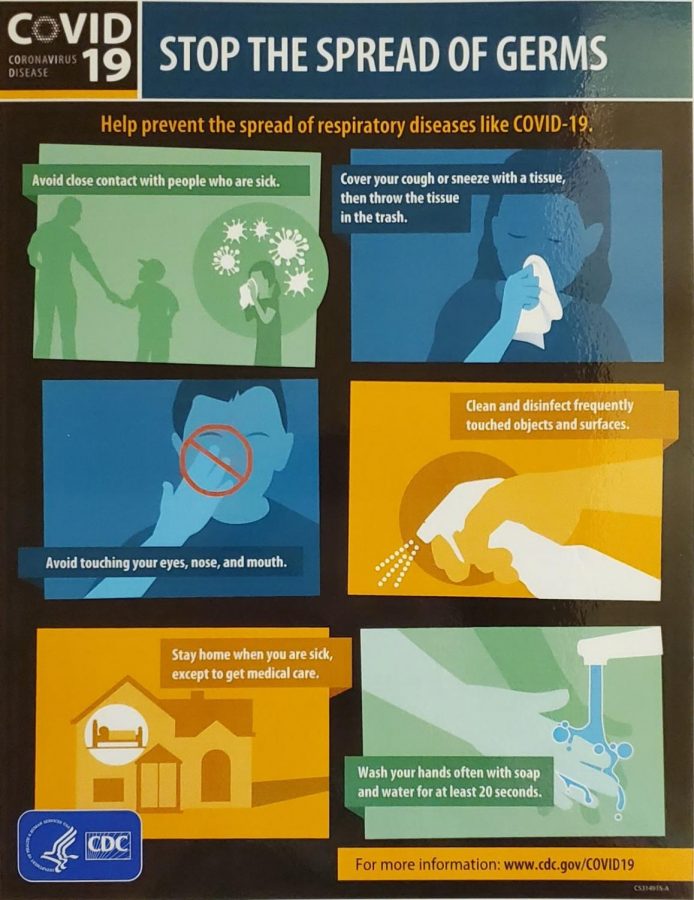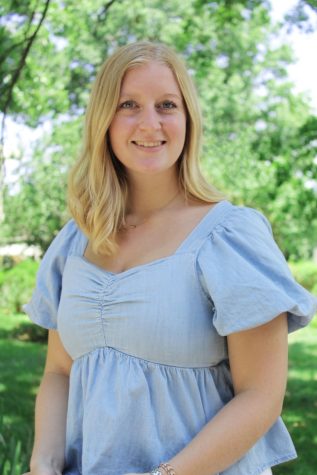How to stay healthy physically and mentally during this pandemic
March 17, 2020
The coronavirus started and spread very quickly. Schools and public places are shutting down, meeting in groups of more than 10 people seems unsafe and self-quarantine is becoming a staple in society today.
Since this happened so fast and spread so rapidly, it is hard for people to comprehend everything. They are getting news from many different sources. Who should they trust? How does someone stay healthy in this time of terror sweeping the world? Professionals from the Washburn University student health and Washburn University Counseling Services give information to help you stay physically and mentally healthy in this time of emergency.
Everyone is stressing social distancing, which might not be a huge hit with college students at the moment, but it is very important to implement. It is encouraged that you stay a minimum of six feet from anyone and limit contact any closer to 10 minutes.
“This virus is spread by droplets,” said Tiffany McManis, the Director for Student Health Services. “As people sneeze and cough, some saliva may go out into the air. It’s small enough that we don’t see it, but it’s still there.”
People can also be carriers of the virus while they are completely healthy and showing no symptoms. The virus could not cling to one person, so it travels through people until it latches on to someone.
There are many precautions that can be taken to prevent the spread of this virus. The main one is to wash your hands for 20 seconds, or use hand sanitizer that has a minimum of 60% alcohol in it. Another precaution is to not touch your face as much. Next, if you sneeze or cough, do it into your elbow, not your hand, or into a tissue and throw it right away.
There are many ways to stay healthy such as staying away from people who are sick, stay hydrated, resting and eating healthy.
According to the World Health Organization, if you are starting to notice any of the symptoms such as a cough, fever and difficulty breathing to seek medical attention.
If you are worrying about getting the correct information, it is best to get your research from credible sources such as the CDC, the World Health Organization, or the Kansas Department of Health and Environment.
It is also important not to “panic purchase” as McManis puts it. This causes more issues aside from health issues.
Even though social distancing is important, it is still hard for people to handle the isolation. It is valid for people to be concerned about being isolated and alone for this period of time. The easiest way is to text, facetime and call your friends or family to maintain contact with people.
“Even though we can’t have those social interactions face to face, we can still have some sort of interaction,” said Abbie Welch, an intern at Washburn University’s Counseling Services.
People can also make connections with Netflix’s screen sharing, to watch a movie with someone without being directly with them.
If you are starting to get lonely and worry about starting to show signs of depression, there are ways to help combat that feeling.
“Maintaining your routine is really important,” said Welch. “It’s important to know your resources, if you can’t go to a therapy appointment.”
Emily Meyerhoffer-Kubalik, a counselor at Counseling Services, also wanted to mention that Washburn University Counseling Services is a 24/7 line if you feel more comfortable with this. The number is 785-670-3100.
As of March 18, Counseling Services will only be conducting sessions by phone.
If you are bored with this time alone, there are some ways to fight your boredom while staying safe in your home. You can look up workout videos on YouTube or go on a walk if the gym near you is closed. Rediscovering hobbies is also a way to pass the time, or even finding a new interest to pursue.
Staying healthy mentally and physically is the main priority of everyone at this time. It is important for everyone to understand their resources if they are needed.
Edited by Adam White, Abbie Barth




